|
| |
This week in: Peace & Security Publications |
IPSI | Africa | Americas | East Asia | Europe & Central Asia | Middle East | South Asia
|
|
|
|
| |
This week in Peace & Security Publications
|
|
|
|
| |
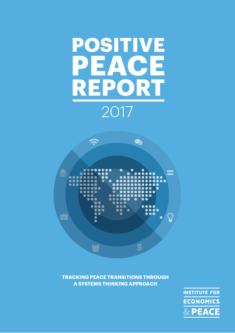
Institute For Economics & Peace: The 2017 Positive Peace Report outlines a new approach to societal development through the application of Positive Peace and systems thinking. Positive Peace is defined as the attitudes, institutions and structures that create and sustain peaceful societies…
|
|
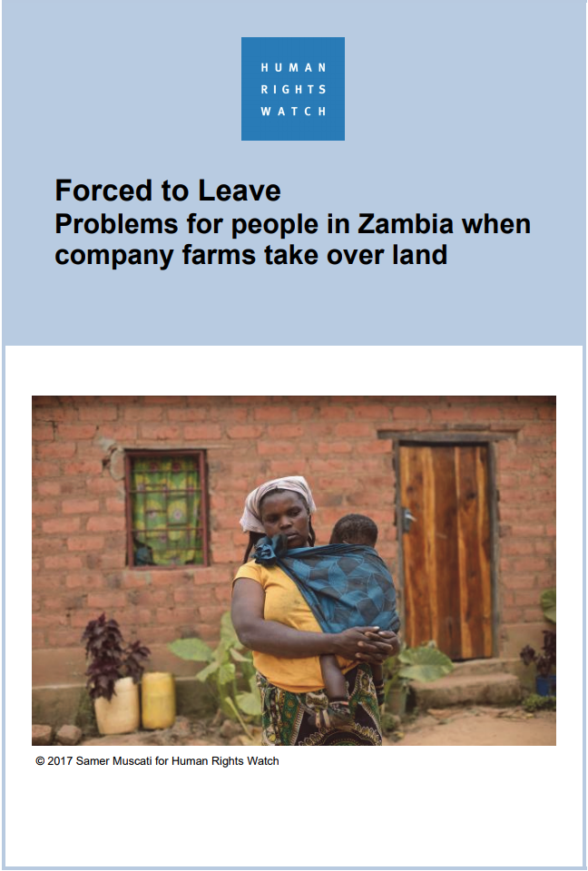
HRW: This report describes how flaws in the Zambian government’s regulation of commercial agriculture, and it’s poor efforts at protecting the rights of vulnerable people, are actually hurting those they are tying to help out of poverty.
|
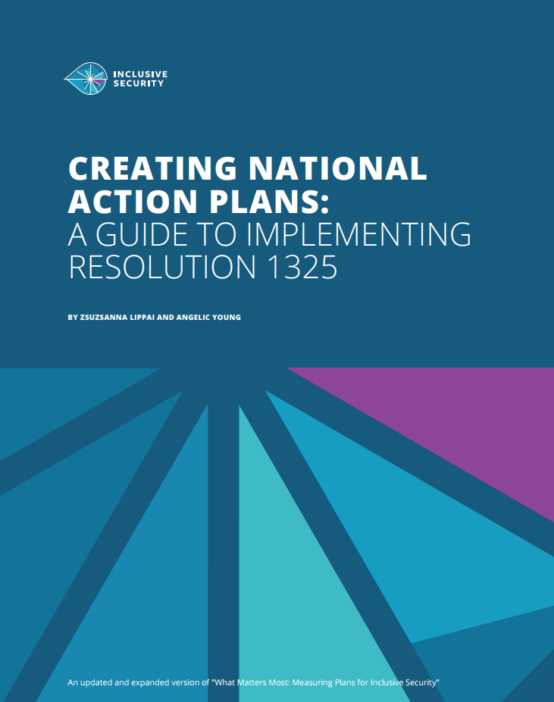
Inclusive Security: This guide is a resource for policymakers and civil society leaders as they seek to develop, implement, and track progress of national strategies aimed at advancing women’s inclusion.
|
|
|
|
|
|
| |

Packed Agenda for the 2017 Civil Affairs Symposium! This year’s Civil Affairs Association Symposium on “Civil Affairs: A Force for Consolidating Gains” in Chicago 2-4 November has a packed agenda for all members of the Civil Affairs Regiment and its many partners, including a panel moderated by IPSI’s Kevin Melton!
|

IPSI was proud to support ADL in its 23rd annual Concert Against Hate. ADL honored extraordinary people have acted with exceptional strength, courage and compassion when confronted by the forces of intolerance, injustice, and extremism.
|
|
|
|
|
|
| |
This week in Sub-Saharan Africa
|
|
|
|
| |
ERITREA: Security forces killed 28 and injured more than 100 in Asmara
On Tuesday, security forces killed at least 28 people in a rare protest in the capital of Eritrea, one of the world’s most reclusive nations. More than 100 people were injured in the protest in Asmara that began on Monday and escalated on Tuesday, according to Nasreddin Ali, the spokesperson for the Red Sea Afar Democratic Organization. The protests began after the government ordered an Islamic school to ban the headscarf and halt religious education. Comment: According to a 2016 report from the U.S. State Department, roughly half of Eritrea’s population is Sunni Muslim, and designates Sunni Islam as one of four officially registered religions; all other practices of Islam are banned. The report also says religious education is allowed in private schools, but religious groups are prohibited from any involvement in politics. The small East African nation is a primary source of migrants arriving in Europe. Its government has faced criticism by human rights advocates over its harsh military conscription laws. ( News24, Aljazeera, Deutsche Welle)
|
|
|
|
|
| |
LIBERIA: Top Court Halts Presidential run-off over fraud allegations
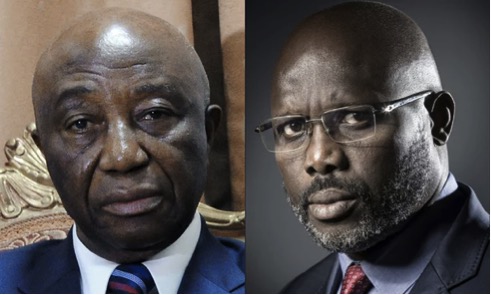
|
|
On Wednesday, the Liberian supreme court halted next week’s presidential election runoff, unnerving the country with a history of political violence. The judges issued a temporary injunction against next Tuesday’s election after ruling a case alleging rampant instances of fraud in the first round of voting should be heard, likely delaying the election for considerable time. The ruling party is joining a legal challenge to the result of the first round of this month’s presidential election. It accuses President Ellen Johnson Sirleaf, one of its members, of interfering with the vote by meeting election officials. The party’s candidate, Vice President Joseph Boakai, is scheduled to face the first-round winner, George Weah, in a run-off election on November 7. Comment: The former footballer George Weah was to go head-to-head with Vice President Boakai next Wednesday, both vying to take over from Ellen Johnson Sirleaf, as her 12-year tenure comes to a close. If all goes accordingly, the election is to be the first democratic transfer of power in more than 70 years. (BBC, The Economist, The Guardian, The Premium Times, The Telegraph)
|
|
|
|
|
| |
SOMALIA: At least 29 dead as hotel siege ends after gun battle
At least 29 people died from an attack in Somalia’s capital of Mogadishu when a hotel was bombed during a siege. Al-Shabab claimed responsibility, broadcasting a statement on its Andalus radio station saying its “Mujahedeen fighters” were targeting “apostate officials.” The country’s police and national security chiefs were subsequently fired for failing to prevent repeated terrorist attacks. Comment: Two weeks ago, twin bombings killed more than 358 people in the deadliest attacks in Somalia’s history. Al-Shabaab, an affiliate of al Qaeda seeking to overthrow the UN-Backed Somalia government, has not claimed responsibility for that attack. (Sky News, BBC, Time, The Guardian)
Researched/Written by Brian Adienge
|
|
|
|
|
| |
This week in the Americas & Caribbean
|
|
|
|
| |
BRAZIL: Popular candy company investigating reports of modern-day slavery
On Friday, Germany candy company Haribo made an announcement following allegations that its suppliers engaged in slavery of workers on various plantations in Brazil. A Brazilian Ministry of Labour and Employment official acknowledged that there had been a rise of complaints in the carnauba wax industry and investigations have shown that working conditions “could be described as slavery.” According to a German documentary, conditions for workers on plantations included being forced to sleep outside, denied access to clean, drinkable water and paid only USD 12 a day. Comment: The main ingredient, carnauba wax, is produced in Brazil’s northeastern states and exported worldwide for various uses such as candy, dental floss, or shoe polish. (Miami Herald, Reuters, The Independent)
|
|
|
|
|
| |
UNITED STATES: Federal judge blocked Trump’s potential ban on transgender people serving in the military
On Monday, District Judge Colleen Kollar-Kotelly overruled President Donald Trump’s proposed transgender military ban on the basis of discrimination stating that the ban was unconstitutional. The transgender ban was set to go into effect on March 23, 2018 though the injunction from Judge Kollar-Kotelly will remain in place until the lawsuit has been resolved. Comment: In June 2016, the Obama Administration enacted a policy change to allow transgender military personnel to openly serve. Under a Pentagon review, the Obama Administration found no basis for exclusion of transgender people after examining medical care and military readiness. In July, President Trump announced via Twitter that transgender people would not be allowed to serve in the military due to “tremendous medical costs.” (The Washington Post, San Francisco Chronicle, Al Jazeera, BBC News)
|
|
|
|
|
| |
UNITED STATES: House imposes sanction on Hezbollah, taking aim at Iran
On Thursday, the U.S. House of Representatives imposed sanctions on Hezbollah, a Lebanon militant group backed by Iran. The first round of sanctions targeted entities offering any support to the militant group; the second round of sanctions directed at Iran and Hezbollah for their using civilians as human shields. Another bill also asks for the European Union to designate Hezbollah as a terrorist organization. Comment: According to Al Jazeera, the decision to extend sanctions to Hezbollah was part of a U.S. effort to not undermine the current Iran Nuclear Deal. (The Hill, Reuters, Al Jazeera)
|
|
|
|
|
| |
UNITED STATES: New York attack suspect charged with federal terrorism
On Tuesday, Sayfullo Habibullaevic Saipov was shot and arrested for driving a rental pick-up onto a bike path along the Hudson River in Manhattan, killing eight people. Saipov stated that he has been watching Islamic State videos and propaganda, which had helped him to plan the attack one year ago. President Donald Trump has asked for Saipov to be given the death penalty, and expressed his support for revoking the Diversity Visa program through which Saipov entered the United States from Uzbekistan. Comment: Saipov faces two criminal charges, one of which can be punishible by the death penalty. Saipov’s cellphone records had more than 90 videos and 4,000 images related to ISIS propaganda. (The New York Times, Reuters, CNN, BBC News)
Researched/Written by Blessing Ikpa
|
|
|
|
|
| |
This week in East Asia & Pacific
|
|
|
|
| |
AUSTRALIA: Manus Island refugees and detainees barricade themselves inside now closed detention center
On Tuesday, the Australian government officially closed the detention camp on Manus Island, Papua New Guinea but hundreds of refugees and detainees refuse to leave the camp – citing safety concerns – despite their lack of access to food and water. Humanitarian organizations express concern about the health situation of the camp inhabitants who began digging to find water on Thursday; the lack of water also poses serious hygiene concerns. According to the Guardian, three heavily armed Papua New Guinea mobile squads assembled outside the camp. Armed local men have also looted the compound. Comment: Earlier, the Australian Supreme Court ruled to close the Manus Island camp due to its inhumane conditions, especially towards refugees and asylum seekers. (Channel News Asia, Al Jazeera, The Guardian)
|
|
|
|
|
| |
CHINA: Tougher penalties for disrespect of National Anthem, law will extend to Hong Kong
On Tuesday, a draft amendment to the National Anthem Law, extending the prison sentence for those who disrespect the anthem or flag, was submitted to parliament. The law extends the length of the sentence from 15 days to up to three years. In accordance with the “one country, two systems” principle, Hong Kong will adopt the law, but be able to determine the length of the penalty independently. Comment: Earlier this month at a football match, Hong Kong fans booed China’s national anthem. In response, Zhang Rongshun, deputy head of Parliament’s Legislative Affairs commission, noted the urgency to apply national anthem law in Hong Kong. At the 19th National Congress that took place a week after the game, President Xi Jinping said Beijing will maintain a “firm grasp” on Hong Kong and exercise full governance. (Xinhua, South China Morning Post, Radio Free Asia, Channel News Asia, Reuters)
|
|
|
|
|
| |
CHINA/SOUTH KOREA: Both nations restore bilateral relationship
On Tuesday, South Korea and China agreed in a joint statement to communicate about a U.S. missile defense system, the Terminal High Altitude Area Defense system (THAAD) and restore a bilateral relationship. The agreement marks an important step in their rapprochement to move forward with denuclearizing the Korean Peninsula. On Wednesday, South-Korean President Moon said his country would not seek nuclear weapons and would never accept North Korea as a nuclear state. Comment: Analysts believe the rapprochement creates a new alignment in the negotiation efforts with North Korea; China’s staunch opposition to THAAD pushed South Korea towards both the U.S. and Japan. China and South Korea seem now to grow closer and stand against U.S. and Japan. (Korea Herald, Chicago Tribune, The Diplomat, Washington Post, New York Times 1, 2)
Researched/Written by Rabia Uddin
|
|
|
|
|
| |
This week in Europe & Central Asia
|
|
|
|
| |
AZERBAIJAN / RUSSIA: Leaders meet with officials in Iran for trilateral discussions
On Wednesday, Russian President Vladimir Putin, Azerbaijani President Ilham Aliyev, and Iranian President Hassan Rouhani met in Tehran to discuss improved cooperation between the three countries on energy, transportation, and trade. The three leaders signed an agreement to increase cooperation in the oil and gas industry and in the production of oil and oil product swaps. The leaders also discussed the Iran nuclear deal. Russia conveyed their continued support of the deal that was signed between Iran and the P5+1 powers and the EU in 2015. U.S. President Donald Trump refused to re-certify the agreement in October. A joint statement issued by the leaders after their Wednesday meetings called on all parties of the deal to adhere to their commitments. Comment: The three leaders hold regular trilateral meetings; their most recent meeting was in August 2016. (The Moscow Times, Radio Free Europe, Reuters)
|
|
|
|
|
| |
MACEDONIA: Local elections deemed fair by OSCE, despite opposition claims
On Sunday, Macedonia held local run-off elections in those municipalities which had remained undecided in the first round of parliamentary elections on October 16. The ruling Social Democrats (SDSM) won 57 of the 81 Macedonian municipalities, while the opposition conservative VMRO-DPMNE party won only five. Just moments after the polls closed, VMRO-DPMNE party leader Nikola Gruevski declared the elections undemocratic “due to election irregularities.” He called for a snap parliamentary vote, the resignation of the state electoral commission, and an investigation into alleged election fraud. Election observers from the Organization for Security and Cooperation in Europe (OSCE) Office for Democratic Institutions and Human Rights said in a statement on Monday that while there were “reports of isolated incidents of the misuse of state resources and vote-buying,” these irregularities did not impact the overall election process. Comment: The SDSM majority government came to power in May 2017 after a corruption scandal rocked the VMRO-DPMNE government, which had been in power for 11 years. (Balkan Insight, Euractiv, Radio Free Europe)
|
|
|
|
|
| |
SPAIN: Catalonian officials summoned to court after independence announcement
| |

|
On Monday, Spain’s state prosecutor filed a lawsuit in the National Court against former Catalonian President Carles Puigdemont, his cabinet, and the regional parliamentary speaker. The officials are accused of rebellion, sedition, and misuse of public funds. These charges stem from the independence referendum on October 1 and the subsequent declaration of independence by the Catalonian parliament. Puigdemont flew to Brussels shortly after the Spanish government seized control of the semi-autonomous Catalonian government. He has refused to return until he has “guarantees” that the government will give him a fair trial. The 13 officials were summoned to appear before the High Court on Wednesday and Thursday, but they are yet to be formally charged. Comment: Spanish Prime Minister Mariano Rajoy called for snap elections to take place in Catalonia in December. Puigdemont has promised respect the results of this election. (Aljazeera, BBC News, Bloomberg, The Guardian)
Researched/Written by Amy Pipher
|
|
|
|
|
| |
This week in the Middle East & North Africa
|
|
|
|
| |
BAHRAIN: Bahrain imposes entry visas on Qatar, escalating the diplomatic crisis in the Gulf

|
|
On Tuesday, Bahraini Interior Minister Shaikh Abdullah bin Rashid Al Khalifa announced the government will formally impose entry visas on Qatari nationals and expatriates on November 10. The decision comes after HRH King Hamad called for increased entry and residency procedures, citing a belief that Qatar is fomenting unrest by supporting protests and violent attacks against its security forces. The visa restrictions follows their Monday announcement to boycott the next Gulf Cooperation Council (GCC) summit if Qatar attends, arguing Qatari membership should be frozen until it meets the GCC’s demands it imposed on Doha in June 2017. Qatar responded saying that Bahrain’s visa restrictions constitute a violation of GCC resolutions and “reveal [Bahrain’s] persistence in severing ties of kinship between the Gulf families in contravention of the provisions and principles of the Islamic religion.” Comment: Bahrain’s unilateral visa restrictions on Qataris will not extend to other GCC members, who will continue to freely travel throughout the Gulf without a passport or visa. In June 2017, Saudi Arabia, the UAE, Bahrain, and several other Arab countries outside of the Persian Gulf severed diplomatic ties with Qatar over Qatar’s support for Islamist groups and close relationship with regional rival Iran. (Gulf News, Al Jazeera, Reuters)
|
|
|
|
|
| |
IRAQ: Riots erupt in response to Barzani’s resignation after independence referendum backfires
On Sunday evening, dozens of protestors broke into the Kurdish Regional Government’s parliament armed with clubs and guns, barricading parliamentarians inside. The riot was in response to Kurdish President Masoud Barzani’s surprise resignation to a televised closed session of parliament earlier that day, who announced he plans to step down on November 1. Barzani stated he will continue to fight for Kurdish independence, but accused Baghdad for escalating tensions, “treasonous” rival Kurdish political parties and the United States for abandoning them after the referendum as to why the referendum ultimately failed. The ensuing debate caused flaring tensions, with one pro-Barzani MP punching a member of the opposition. On Monday, Iraqi Prime Minister Haider al-Abadi called for calm in the wake of the riot. Comment: Barzani led the Kurdish Regional Government (KRG) since its establishment in 2005. The KRG enjoyed wide autonomy but was plunged into turmoil following last month’s independence referendum, which saw the region economically and politically isolated by the central government in Baghdad and by the wider international community. (Al Jazeera, New York Times, AP, Reuters)
|
|
|
|
|
| |
REGIONAL: Russia to host Syrian People’s Congress in Sochi this month
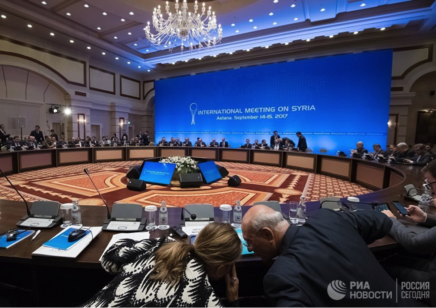
|
|
On Tuesday, Russian Foreign Minister Sergey Lavrov announced an official proposal of inviting 33 Syrian factions to a “Syrian Congress on National Dialogue” on November 18, hosted in the Russian resort town of Sochi. Russian President Vladimir Putin said the Congress will include “all ethnic and religious groups, and the government, and the opposition” in an effort to find a lasting peaceful solution to the Syrian crisis and draft a new Syrian constitution. The Congress is widely seen as Russia’s attempt to undermine existing UN peace talks in Geneva, and representatives of several Syrian opposition factions indicated their plan to boycott the Sochi conference. Comment: The Russian proposal was a primary outcome of the seventh round of the Astana talks in Kazakhstan. The Astana talks began in January 2017 and have run parallel with UN-sponsored talks in Geneva, which have largely stalled over the issue of Syrian President Bashar al-Assad stepping down as a precondition for further talks. (The Daily Star, The Guardian, RIA, Asharq Al-Awsat, Reuters)
Researched/Written by Zachary Libow
|
|
|
|
|
| |
INDIA: Explosion at power plant kills 26, injures nearly 100
On Wednesday, a boiler in the state-owned coal-fired National Thermal Power Corporation (NTCP) in Uttar Pradesh exploded, killing 26 and injuring more than 80 others. The incident took place in the section of the plant where ash is handled. Preliminary reports indicate that cinders and steam had reached temperatures over 280 degrees Fahrenheit when they burst out. Local police fear the number of casualties may rise due to significant burn injuries or from being trapped in the debris. Comment: The plant supplies power to Uttar Pradesh, Haryana, Himachal Pradesh, Jammu and Kashmir, Punjab, Rajasthan, Chandigarh, New Delhi and Uttarakhand, and has been shut down. Local and international organizations have repeatedly called for stricter safety standards and workplace regulations in India. (The Wire, Hindustan Times 1, 2, BBC)
|
|
|
|
|
| |
PAKISTAN: In landmark ruling, man fined and jailed for attempted polygamy without first wife’s permission
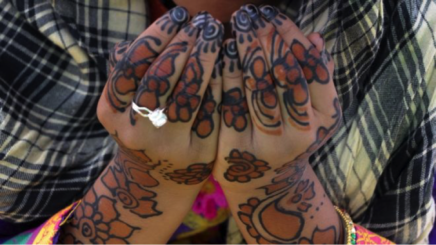
|
|
On Wednesday, in a landmark verdict, a Pakistani court ruled on the side of a woman to enact a polygamy law. The 2015 law requires men to obtain written permission from existing wives before marrying additional ones. The court fined a Lahore man, who failed to obtain written permission, RS 200,000 (USD 1,902) and sentenced him to six months in jail. The court rejected the man’s argument that Islam allowed him to have four wives. Women’s rights activists are applauding the ruling. They see it as encouraging women’s empowerment and setting a precedent in the country to discourage polygamous relationships. Comment: The Council of Islamic Ideology (CII), which provides the Pakistani government with legal advice regarding Islamic issues, has previously criticized the country’s family law and opposes any restrictions on polygamy. Polygamy is not widespread in Pakistan, but does occur in more rural areas. (The Dawn, BBC, Reuters)
|
|
|
|
|
| |
PAKISTAN: Ousted prime minister returns home to face trial in anti-corruption case
On Thursday, ousted Prime Minister Nawaz Sharif returned to Islamabad ahead of his appearance before the National Accountability Bureau (NAB). Sharif will stand in court on Friday over allegations of corruption brought to light by the 2016 Panama Papers leak. The Panama Papers called into question the Sharif family’s finances, including allegations that Sharif and his children used revenue from offshore companies to acquire expensive properties in London. A Supreme Court-appointed investigatory panel found that the family’s wealth did not match it’s income. Sharif maintains that the allegations are false and part of a political attack on himself and his family. Comment: Sharif served as prime minister twice before being ousted in a military coup in 1999. The Supreme Court disqualified him from office in July over unreported sources of income, yet Sharif still maintains control of the ruling Pakistan Muslim League-Nawaz (PML-N) party. Sharif’s daughter Maryam and her husband, Muhammad Safdar, will also be facing trials before the NAB court. All three have pleaded not guilty. (PakTribune, Dawn, BBC, Reuters)
Researched/Written by Natalie A. Landau
|
|
|

|
|